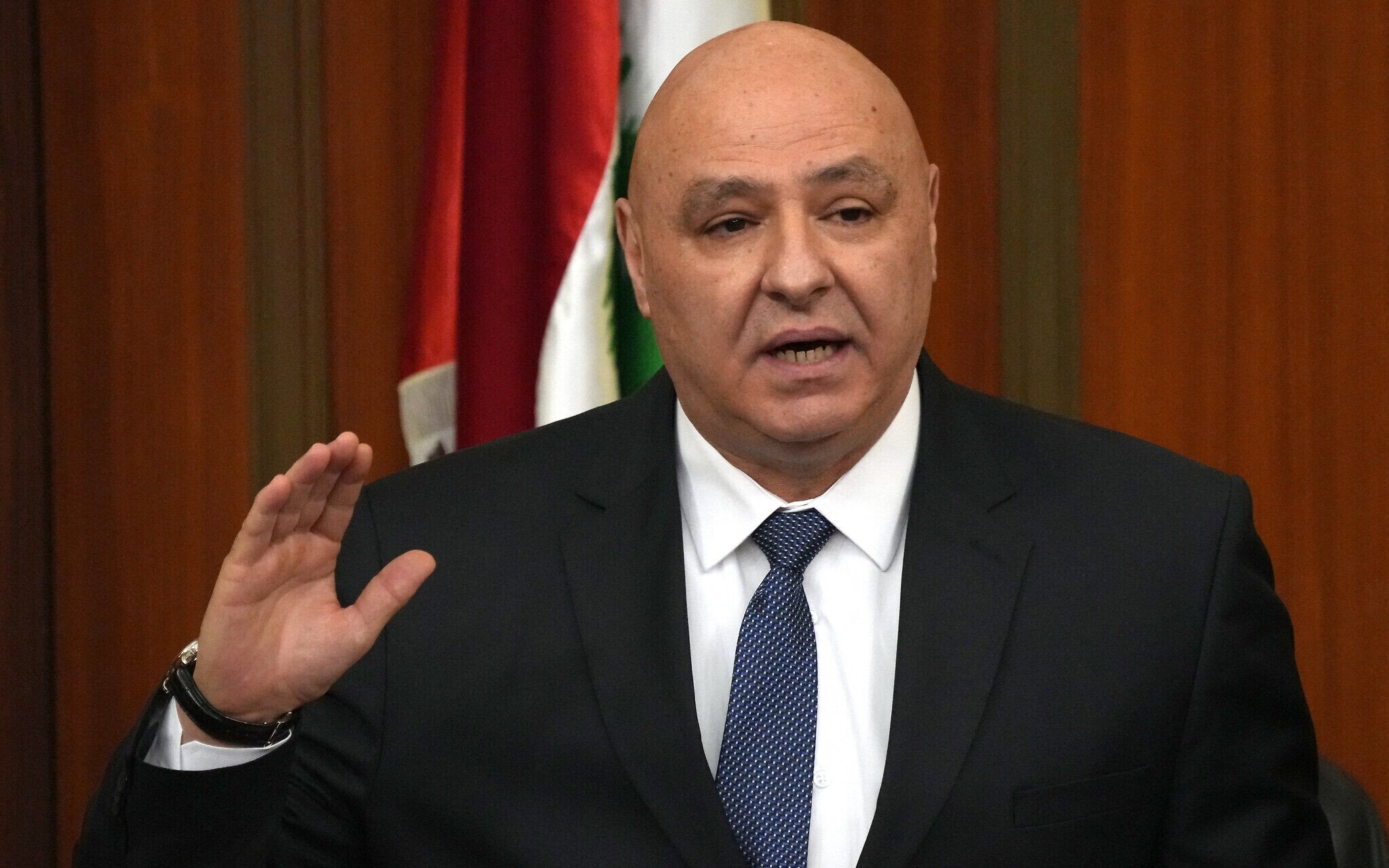Lebanese President Joseph Aoun declared on Friday that Lebanon currently has no intention of normalizing relations with Israel, despite expressing a desire for peaceful coexistence with its southern neighbor.
His remarks come amid lingering tensions following last year’s conflict between Israel and Hezbollah, during which Israeli forces maintained positions in southern Lebanon.
Speaking in Beirut during a meeting with members of an Arab think tank, Aoun clarified Lebanon’s position regarding its ongoing standoff with Israel and the armed presence of Hezbollah.
He reiterated that a complete Israeli military withdrawal from Lebanese territory remains a top priority for the government.
Furthermore, Aoun doubled down on his administration’s stance to maintain exclusive state control over weapons.
It was a pointed message directed at Hezbollah, the Iran-aligned militant group that continues to operate heavily armed within the country.
A statement from the president’s office emphasized that Aoun made a distinction between achieving peace and engaging in diplomatic normalization.
“Peace means the absence of war, and that’s the immediate priority for Lebanon,” the statement quoted Aoun as saying.
“Normalization, however, is not currently part of our foreign policy.”
Aoun’s comments mark Lebanon’s first official response to a statement made the previous month by Israeli Foreign Minister Gideon Sa’ar.
Sa’ar had expressed Israel’s openness to normalizing relations with Lebanon and Syria.
Both nations remain officially at war with Israel, a status that dates back to the Jewish state’s founding in 1948.
However, Israeli officials have indicated that normalization cannot move forward unless Hezbollah is disarmed.
Since assuming office in January after a prolonged two-year vacancy in the Lebanese presidency, Aoun has committed to upholding the state’s exclusive right to bear arms.
Reaffirming this stance on Friday, he declared, “The decision to limit weapons to state institutions is final, there will be no retreat from this principle.”
He also praised Parliament Speaker Nabih Berri, a longtime Hezbollah ally, for his role in promoting this policy.
Hezbollah suffered a significant blow during its recent war with Israel, which ended with a ceasefire agreement on November 27.
As part of the deal, Hezbollah was required to vacate southern Lebanon, allowing the Lebanese Armed Forces and international peacekeepers to move in.
Israel was granted a 60-day window to withdraw its troops, though it still retains control over five strategic points along the border.
Aoun criticized this continued Israeli military presence, stating it hinders the Lebanese army’s ability to fully deploy to the country’s southernmost boundaries, in line with internationally recognized borders.
His remarks were broadcast by Lebanese state media outlet LBCI.
The president also spoke favorably about strengthening diplomatic ties with neighboring Syria.
He expressed support for interim Syrian President Ahmed al-Sharaa, who overthrew Iran-backed Bashar al-Assad last December.
Assad’s regime had long served as a conduit for arms and logistical support from Iran to Hezbollah.
Aoun noted that Lebanese and Syrian security agencies are currently working together to combat the cross-border smuggling of weapons, narcotics, and people.
The United States has continued to pressure Lebanon to dismantle Hezbollah’s military infrastructure.
In response, Lebanese officials sent a formal reply to Washington this week.
While the contents of the response remain undisclosed, U.S. Special Envoy Thomas Barrack said he was “unbelievably satisfied” with Lebanon’s position during comments made on Monday.
Hezbollah’s renewed aggression was triggered on October 8, 2023.
This was just one day after the Hamas-led attack on southern Israel that resulted in the deaths of approximately 1,200 people and the capture of 251 hostages.
Since then, Hezbollah has carried out frequent rocket attacks on northern Israel, forcing the evacuation of around 60,000 residents.
In retaliation, Israel intensified military operations inside Lebanon, targeting Hezbollah’s command structure and striking regions associated with the group.
These efforts were aimed at creating conditions for the safe return of displaced Israeli civilians while weakening Hezbollah’s influence near the border.







